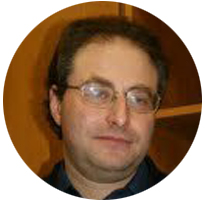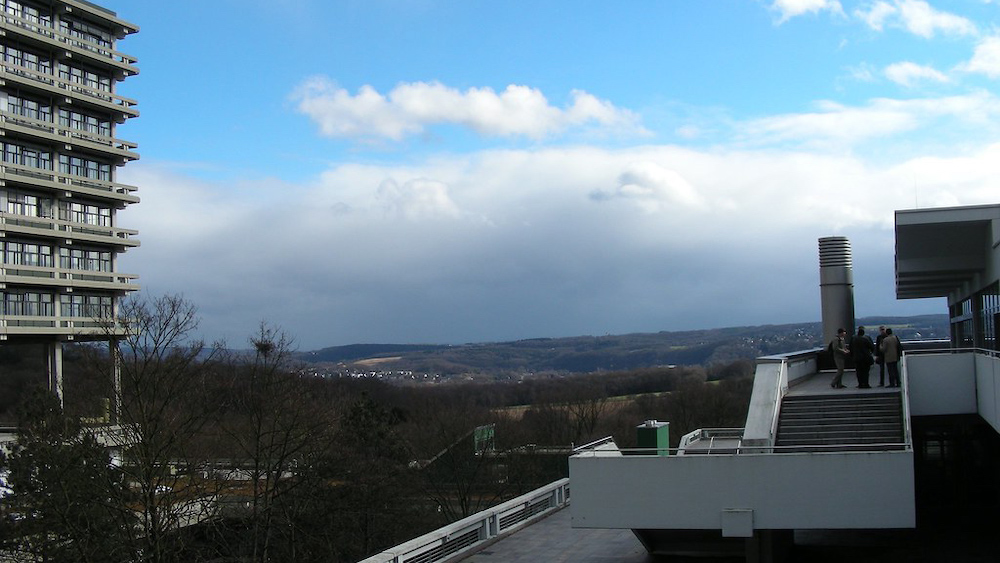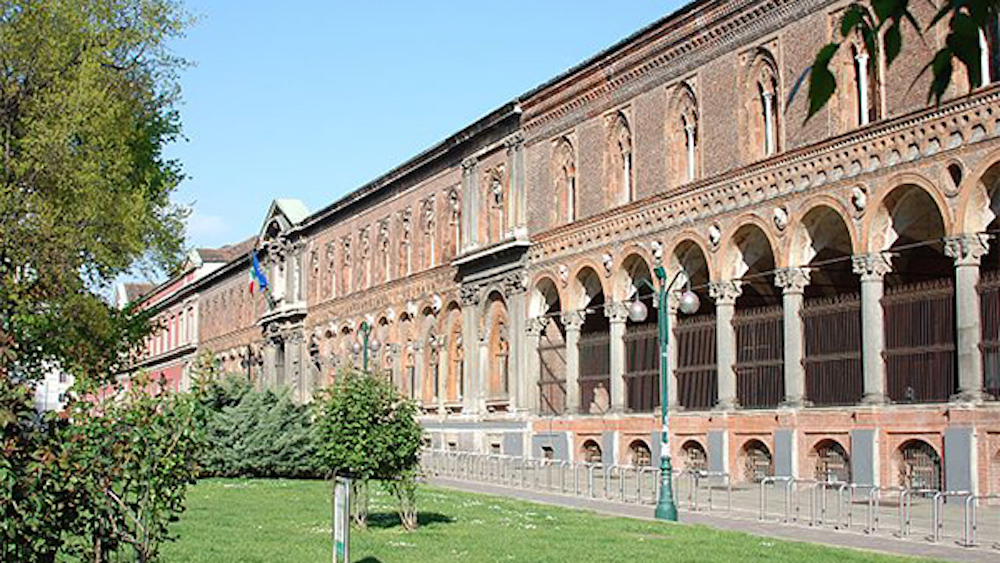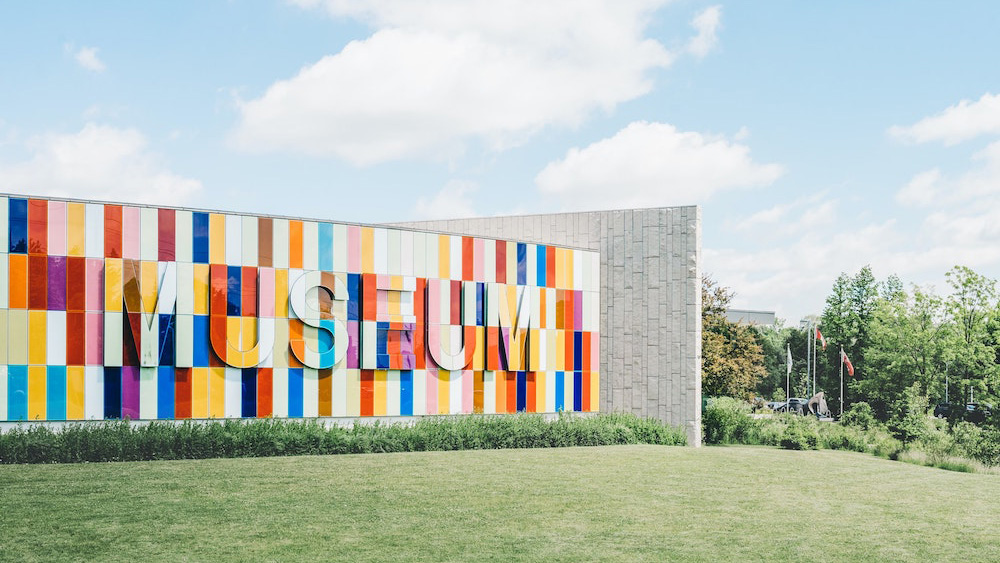29.04.2020
This year the the international educational scientific centre “Higher School for European Cultures” (HSEC), the Faculty of Cultural Studies faces a new goal – to enrol a group of English-speaking students on an MA program “Russia and Europe: Linguistic and Cultural Interaction”. Arkadiy Perlov, the director of the HSEC, told us about those who are expected as enrollees of the program, as well as how the studying and the admission will look like and what advantages the program has.

We have the page with the main information about the program , and the sub-page dedicated to these special moments. But I highly recommend everyone who even just thinks about the opportunity to apply for the program, either Russian or international enrollees email us at vshek@rggu.ru. Then we will be able to answer all the questions quickly and keep you posted.
– The MA program "Russia and Europe: Linguistic and Cultural Interaction" is the first RSUH' program that offers the opportunity to study entirely in the English language. For whom was it designed? Who will be studying at the program?
– We see three groups of people for whom the program could be interesting. The first group is international Slavonic scholars who have a BA degree, and for some reasons such as perfectionism or lack of Russian language courses at BA programs do not feel confident in their knowledge of the Russian language. For them, there is a significant amount of "Russian as a Foreign Language" among the elective courses. The second group is Russian students who want to study in foreign languages and receive the MA diploma of one of the partner universities as well as the diploma in Cultural Studies of RSUH. The partner universities are most likely RUB (Bochum, Germany) and UNIMI (Milan, Italy). The third group is all kinds of Russian and international enrollees who are intent to gain the experience of education in Russia, in Moscow, if they satisfy the requirements applied to RSUH' MA programs enrollees and pass the entrance examination on theory and history of culture.
– By what should your program attract students? What are its advantages over other programs?
– There are many of these advantages; they are different as they are referred to various groups of enrollees.
For international students, as was already mentioned, first of all, it is the significant amount of "Russian as a Foreign Language", from 6 mandatory credits up to 27 credits that is more than one-third of all curriculum. Of course, if you speak, read and write in Russian fluently you do not attend these courses. However, the particular amount of credits will depend on the personal level of the Russian language as well as on the total number of students enrolled on the program.
In addition, the curriculum enables students to attend some courses either in the first or in the second years of studies, in Russian or English.
For Russian students or students who are fluent in the Russian language, first of all, there is the opportunity to receive double diplomas more easily. As a result of the possibility to attend courses in the first year either in Russian or in English, the second-year's curriculum could be less intense, and students will be able to go to an internship. Now we have eight ensured one-term scholarships for internship in Bochum and likely five one-year scholarships for Milan. They all are for second-year students. Only for English-speaking students it will be harder to create a personal educational strategy that will include an internship and the second diploma, respectively. However, it is not impossible.
And for all students there is our main competitive advantage. There is the tradition of very intense work on student's research project (MA thesis) in the HSEC, the Faculty of Cultural Studies. The theme of the thesis is chosen in the first term; at the same time, you are assigned a supervisor, the thesis' tutor with whom you work on your research for all the terms. You could design the task in the majority of the courses so as they are relevant to your thesis' research. Consequently, you could look at any course through the prism of your dissertation's goal, its methodology and more profound knowledge of its problem and object.
– What courses will be included in the curriculum? How will teaching in English and Russian be correlated?
– To make the answer easier, I combine the courses into big units - modules. There are three mandatory modules: "Methodology of Cultural Studies", "Visual Studies", "Russian Culture". The elective modules which could vary in the number of credits are "Russian as a Foreign Language", "Media", "Cinema". There could also be such modules as "Fashion", "Management of Cultural Projects" and "Russian Foreign Politics" but conducting the courses included in these modules depends on whether the sufficient number of students will choose them. Usually, first-year students get the opportunity to choose several second-year courses in December or January, and it depends on the number of those who choose whether a course will take place or not.


The question about the correlation between teaching in Russian and English is also connected to the number of enrolled students. If we enrol 30 or more students, we will be able to open fully-featured English and Russian strategies of education. If we enrol less than 30 students, we will be finding compromise versions. For instance, the majority of the courses will be taught in English, and the courses in Russian will be attended by Russian students in the first year and by international students in the second year when they will level up the knowledge of the Russian language at the courses of "Russian as a Foreign Language" module.
There are some other "know-how"’s; it is clear that we will quite actively use planning of individual curriculums depend on language competence of students.
– What are the reasons to think the project will be successful?
– There are many of them.
First of all, the HSEC has quite significant experience in collaboration with international students. Our first international program ("Russian Culture", in cooperation with Lotman Institute of Ruhr-University) has been carried out since 2007. During this time 107 MA and PhD students from Germany, Austria and Italy undertook an internship in the HSEC and 76 students from the RSUH completed an internship in the Ruhr-University. Among this number of students, there are 57 Russian and 24 international students who received double MA diplomas. I especially highlight the second number that is very impressive for a humanitarian academic program; most commonly, European students do not want to undertake efforts to receive a Russian diploma. So, this statistic shows that we know how to work with international MA students, and they find reasons for studying and defending thesises at the RSUH. The particular ideological proximity is also important. The HSEC is one of the small oasises of the Westernism of higher education in Moscow as the Moscow School of Social and Economic Sciences (MSSES) and the European University are.
Secondly, we have experience of teaching in English though it is limited for this moment. We included four pilot courses in English into the curriculum of 2019-2020 studying year; three courses were in the first year of studies, and one was in the second year. All the courses were carried out quite well; before this year there were only short courses in English taught by professors from partner universities. If we use classical Russian proverb, then we can say Russian students were quite slow to get started, but then they finally drove.
Thirdly, we hope we can count on support and understanding of the university that obviously takes an interest in developing teaching in English. For this, it is needed to start somewhere.
Of course, difficulties should also be expected. The coronavirus epidemic will be on the wane by autumn and even probably by summer, i.e. time for applying documents and entrance examinations. However, it is clear that now our potential students do not keep in their minds the idea of studying abroad. So, the main problem is that we are just afraid of not having time to meet our enrollees.

– Well, let's move to organisational and technical issues. International students, even without coronavirus, will face many complicated moments such as applying documents, entrance examination, conclusion of tuition agreement, getting the place in accommodation, getting the visa. What could you advise them now?
– First of all, to be in touch with us. The situation is really changing now. For instance, it is possible to apply the documents to the RSUH online; probably, the enrollees will be able to pass the entrance examination remotely. Nevertheless, there is no state and university's legal background for this right now as well the technology of these processes is not adjusted. So, it is essential that we could monitor each of our enrollees whether their documents have arrived, everything is in order, or something needs to be sent, reassured, to be added by something.
The same situation is with tuition fees. There are eight tuition-free spots at the program but, as you know, only citizens of the Russian Federation and citizens of the Customs Union have the right to compete for them. For everyone else the education in on payment basement. This term, the students studying in the part-time mode of the program in the field of "Cultural Studies" for which we announce the enrollment, paid 48,400 rubles for a term of study. It is generally speaking cheap for a Moscow university. This amount of tuition fees is likely to change but within the official inflation rate; if we know all enrollees, we will be able to inform them about this and all other formal changes on time. We have the page with the main information about the program , and the sub-page dedicated to these special moments. But I highly recommend everyone who even just thinks about the opportunity to apply for the program, either Russian or international enrollees email us at vshek@rggu.ru. Then we will be able to answer all the questions quickly and keep you posted.
– What would you like to tell the potential enrollees at the end of the interview?
I would like to appeal to them not to afraid. The first program in English at the RSUH is an exciting challenge either for professors or for Russian and international students. However, the earliest explorers may have a chance to win a lot. The teachers and professors will gain the experience; the first students of the program will get quite a non-judgemental attitude toward themselves. At the same time, all of it is about an experience of living and studying in Russia and Moscow. Our German and Italian students report on this experience with great pleasure!